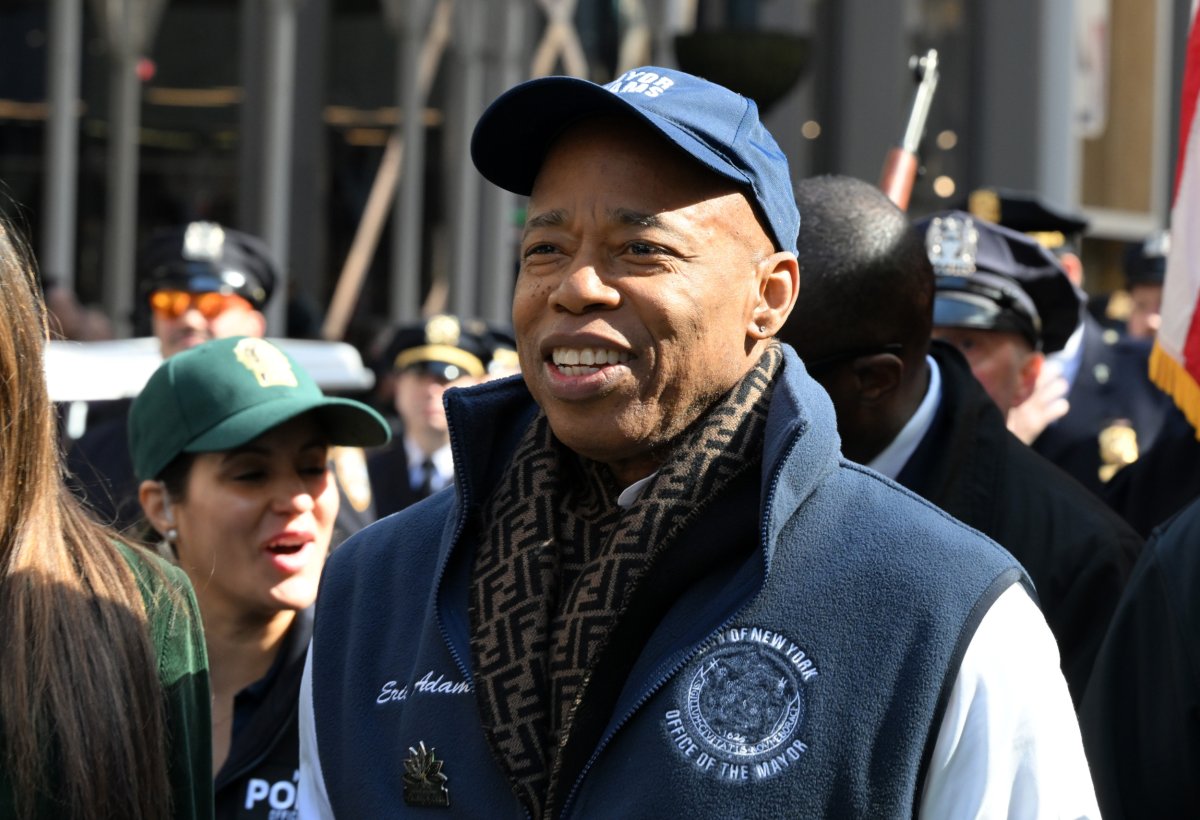Some New York City landlords will be affected by the city's Rent Stabilization Law for another three years after Mayor Eric Adams extended the measure until 2027.
The legislation sets the rate landlords are permitted to increase rents by and has been in effect ever since it was originally enacted in 1969.
Extended once again through April 2027, tenants' right advocates are celebrated while landlords have expressed disappointment by the decision, saying that it cuts into their profits and reinvestment efforts.
"Our rent stabilization laws are critical to the security of working-class New Yorkers who live in rent-stabilized housing," Adams, a Democrat, said at a bill-signing ceremony, according to reporting by Our Town, a local paper for the city's Upper East Side.

The law affects over a million rent-stabilized properties and roughly 44 percent of all rental apartments.
Since the pandemic, the city has seen an influx of residents move back. While New York saw a vacancy rate of 4.54 percent in 2021, that figure had moved down to just 1.41 percent, according to the city's Department of Housing Preservation and Development and the U.S. Census Bureau.
Since the bill has been extended, New York City is also working to implement new zoning ordinances that would permit commercial buildings to transition into residential units. This new move is courtesy of the "City of Yes" initiative.
"Declaring a housing emergency and extending rent stabilization another three years is a necessary step to protect some of the most vulnerable renters from unaffordable rent increases, but it does not get us out of this crisis," Adolfo Carrión Jr., the commissioner of the NYC Department of Housing Preservation and Development, said in a statement.
"Today and every day, we are renewing our calls for all levels of government to step up and deliver the tools we need to build housing at the scale this crisis demands."
The rent stabilization law also calls for protections against evictions and ensures tenants have access to several "required services" and lease renewal.
Last year, New York's Rent Guidelines Board said rents could only increase by 2.75 percent for the first year of two-year leases and 3.2 percent for the next year.
Landlords have come out in opposition to the extended law, with some petitioning the U.S. Supreme Court to analyze its legality. The Supreme Court denied these requests three times in a row, but landlord rights groups say the rent hike and eviction protections violate their rights as homeowners.
The Rent Stabilization Association of New York has called on the city to "unfreeze" rents and also said the law "arbitrarily sets rents" while property taxes remain high. So far, the groups haven't garnered much momentum.
"Our city is facing a housing emergency with a dire shortage of available homes that impacts all New Yorkers," City Council Speaker Adrienne Adams said. "The signing of this legislation into law extends the New York City Rent Stabilization Law of 1969 to ensure rent regulation protections can continue unimpeded within our city."
Alan Chang, the founder and president of Vested Title & Escrow, warned the regulation's extension could have a troubling effect if landlords are not able to keep up with the market rate of their rent increases.
"If landlords are not able to keep up with market rate increases in rents, then there would be less money available to reinvest into the property for certain types of maintenance and improvements," Chang told Newsweek. "With inflation still at high levels, the cost of everything is more expensive, including labor and materials for housing upkeep. If a complex is not turning a reasonable profit with increased property taxes and maintenance expenses, the owner is likely not going to put more funds into it for updates."
Inflation stood at 3.2 percent in February, and landlords might feel stretched thin enough that they stop providing high quality service to tenants, Austin Hair, a managing partner at real estate investment marketplace Leaders Token, added.
"The end result is that living conditions continue to get worse and worse for the tenants and in some cases, landlords will not be able to keep up with improvements as inflation increases their costs of doing business," Hair told Newsweek.
While landlords initially look at their rental properties as investments, rules under the Rent Stabilization Law could prevent them from drawing a profit.
"Lawmakers advocating for rent control may overlook or underestimate these financial burdens," realtor Pila Jessie told Newsweek. "Landlords feel underrepresented and unheard. It's not solely about maximizing profits; rental properties are also known as income properties so they should, by design, generate an income. For many landlords, maintaining their properties becomes a financial strain rather than a source of returns."
Cody Horvat, a real estate broker for The Scott Group, called the law a "small band aid" to the larger housing shortage and "unrealistic" cost of living in New York.
The median income for Manhattan is just $52,409, which means a monthly income of $3,367 before taxes. With an average one-bedroom apartment costing $4,192, according to Zumper, many New Yorkers find it difficult to find affordable housing within the city's limits.
Uncommon Knowledge
Newsweek is committed to challenging conventional wisdom and finding connections in the search for common ground.
Newsweek is committed to challenging conventional wisdom and finding connections in the search for common ground.
About the writer
Suzanne Blake is a Newsweek reporter based in New York. Her focus is reporting on consumer and social trends, spanning ... Read more
To read how Newsweek uses AI as a newsroom tool, Click here.








